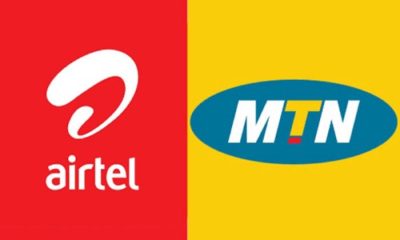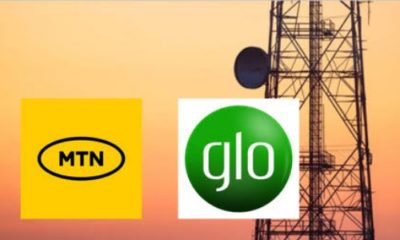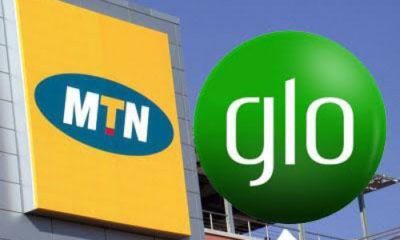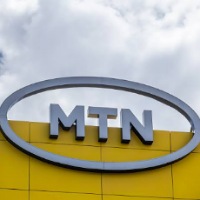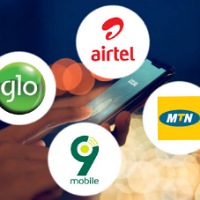Communication
Telcos Authorized To Disconnect Bank Customers’ USSD Access

Nigerian mobile telecommunications giants, including MTN, Glo, Airtel, and 9mobile, have received approval from the Nigerian Communications Commission to disconnect bank customers access to USSD service.
This decision comes in response to the banks’ failure to settle their outstanding debt of N120 billion owed to the telecom operators for Unstructured Supplementary Service Data services.
The announcement was made through a statement released by the association and signed by its Chairman, Gbenga Adebayo.
It says “Members of the public will recall that MNOs and DMBs have had protracted disagreements concerning the appropriate USSD pricing model for financial transactions, transparency of charges, mode of collection, and liability for payment of the outstanding and continuous service fees due to the MNOs (which currently stand at over N120 billion).”
ALTON clarified that despite the ongoing debt issue, stakeholders have been actively involved in efforts to address the situation and mitigate any potential impact on services.
This collaborative effort involves key figures such as the Minister of Communication and Digital Economy, Prof. Isa Ali Pantami, as well as the Nigerian Communications Commission (NCC), the Central Bank of Nigeria, Mobile Network Operators (MNOs), and Deposit Money Banks (DMBs).
Despite the efforts of telecom operators to resolve the outstanding debt issue with the banks, the latter has refused to cooperate on payment.
ALTON had pointed out that the DMBs have been accumulating debt without making any effort to settle their previous payments. In 2021 alone, the DMBs incurred a debt of N42bn, which prompted the MNOs to plan action against them prior to the current decision to seek disconnection.
However, when the Mobile Network Operators (MNOs) planned to take action against the Deposit Money Banks (DMBs) regarding the debt issue, interventions were made by the Minister of Communication and Digital Economy, Prof. Pantami.
The minister discouraged the MNOs from proceeding with the disconnection, emphasizing that such action would have adverse effects on the Digital and Financial Inclusion policy of the Federal Government.
“The Nigerian Communications Commission, Association of Licensed Telecoms Operators of Nigeria, Association of Telecommunications Companies of Nigeria and Deposit Money Banks represented by the Chairman, Body of Bank CEOs subsequently met on 15 March 2021 to discuss indebtedness of DMBs to MNOs for USSD services.
In response to the situation, the Central Bank of Nigeria (CBN) and the Nigerian Communications Commission (NCC) issued a joint press statement announcing an agreement reached by all stakeholders involved.
It reads “The Honourable Minister of Communications and Digital Economy and the NCC have made several efforts to get the banks to show good faith and sign an agreement, in the national interest, based on the resolutions reached that meeting.
“Unfortunately, the patriotic intervention of the Minister and the NCC have been taken for granted by the DMBs, as two years after, the banks have failed to sign a final agreement,” ALTON explained.
“It is pertinent to note that the contract between MNOs and DMBs on the use of USSDs for banking transactions is strictly commercial and MNOs are at liberty to withdraw the services if it is established that the transaction is unprofitable to them.
ALTON emphasized that the Mobile Network Operators (MNOs) had made significant investments amounting to billions of naira in expanding their systems to meet the USSD requirements of the Deposit Money Banks (DMBs) over the years.
Which has allowed Nigerians seamless access to banking services,” in addition to enabling banks to trim costs by requiring fewer branches to service their growing customers. Unfortunately, MNOs are not getting paid for their services, and the debt that stood at N42bn in 2021 has now risen to over N120bn,” the telcos added.
Communication
Nigeria’s Telecom Market Eyes $11.43bn Value By 2029

In a significant market projection, Mordor Intelligence predicts that the Nigerian telecom sector is set to surge to a value of $11.43 billion by 2029.
The report anticipates a steady growth trajectory with a cumulative average growth rate (CAGR) of 4.70% between 2024 and 2029, based on the current market value of $9.09 billion.
The transformation of Nigeria’s telecom landscape, fueled by government initiatives to boost internet infrastructure and broadband connectivity, coupled with rising data consumption, 5G deployments, and innovative strategies from major telecom players, is expected to drive this substantial market expansion.
The report underscores additional factors propelling the growth of Nigeria’s telecom sector, emphasizing the surge in smartphone adoption.
the report said “Increased smartphone adoption in Nigeria has fueled the development of a dynamic digital services sector. Currently, millions of Nigerians use mobile apps, including social networking sites, e-commerce, and financial services.
“These apps could leverage smartphones’ capabilities to offer speed, convenience, and efficiency, encouraging more people to invest in smartphones.
“In addition to these expansions and collaborations, the growing adoption of digital technologies and government support in aiding the same alongside the 5G technology implementation across the country is analyzed to boost the demand for telecom towers significantly.”
“In addition to these expansions and collaborations, the growing adoption of digital technologies and government support in aiding the same alongside the 5G technology implementation across the country is analyzed to boost the demand for telecom towers significantly.”
Mordor Intelligence highlights that the flourishing e-commerce and digital service platforms in Nigeria are significant drivers behind the escalating demand for dependable telecom services in the country.
Communication
MTN Set To Partially Disconnect Glo Network

The Nigerian Communications Commission (NCC) has granted MTN’s request to partially disconnect Globacom (Glo) from its network owing to unsettled interconnect charges.
Reuben Muoka, the NCC’s Director of Public Affairs, disclosed this in a document named ‘Pre-Disconnection Notice’ on Monday.
The move follows Glo’s persistent failure to clear its outstanding debts despite multiple attempts to resolve the issue.
Under this partial disconnection, Globacom subscribers will solely receive calls from MTN users, while retaining access to other network services like outgoing calls to other networks and data services.
However, they won’t be able to initiate calls to MTN users during this period.
The statement read, “All subscribers are, therefore requested to take notice that the Commission has approved the Partial Disconnection of Globacom to MTN in accordance with Section 100 of the Nigerian Communications Act, 2003 and Paragraph 9 of the Guidelines on Procedure for Granting Approval to Disconnect Telecommunications Operators, 2012.
“At the expiration of 10 days from January 8, 2024, subscribers of Globacom will no longer be able to make calls to MTN but will be able to receive calls.
“The Partial Disconnection, however, will allow in-bound calls to the Globacom network,” it added
Communication
Despite Hardship Nigerians Spent N3.33tn On Calls, Data In 2022
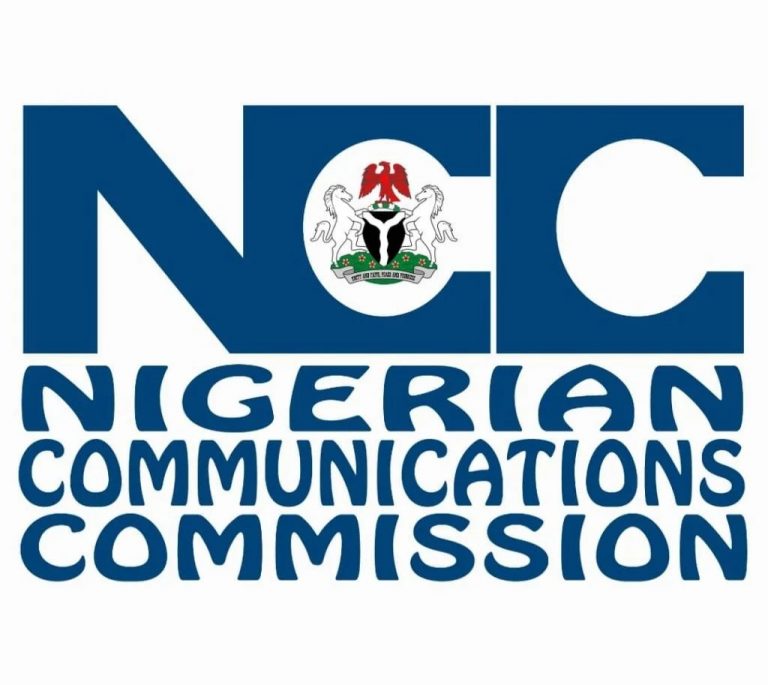
Nigerian telecommunication users, along with others within the country, expended a total of N3.33 trillion on various telecom services such as calls, data, SMS, and more throughout 2022, according to the Nigerian Communications Commission (NCC).
This information comes from the recently published ‘2022 Subscriber/Network Data Annual Report’ by the NCC, which also revealed that telecom companies generated N3.33 trillion in overall revenue for that year.
The report further highlights a noteworthy growth of active voice subscriptions, rising from 195,463,898 subscriptions in 2021 to 222,571,568 by December 2022, marking a 13.86% year-on-year increase.
Commenting on the increase, it said, “The increase in the Operators’ subscriber base was attributed to a number of reasons which includes subscriber loyalty, promos, seasonal effects, aggressive consumer acquisition drive, and competitive product offerings across all the networks.”
It noted that the growth in active subscriptions impacted positively on other derived telecom indicators such as teledensity, Internet penetration as well as broadband penetration.
Data usage also continued its surge in 2022. It increased by 46.77 per cent to 518,381.78TB as of the end of the year.
The NCC stated, “There was an increase in the volume of data consumed at the year-end December 2022 when compared with the year-end December 2021.
“The total volume of data consumed by subscribers increased to 518,381.78TB as of December 2022 from 353,118.89TB as of December 2021. This represents an increase of 46.77 per cent in data consumption within the period.”

